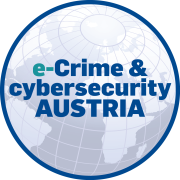Agenda
Presentations already confirmed include:
►Cyber Leadership in an era of Dis-Cooperation
William Dixon, Associate Fellow, Royal United Services Institute and Senior Technology Cyber Fellow, The Ukraine Foundation
- How global trade fragmentation impacts the community
- How the "America First" Foreign Policy is leading to cyber instability
- Actions the Cyber C-Suite can take
►Secure Your Supply Chain — Secure Your Organisation
Geoffrey Taylor, Information Security Officer, Nordea Asset management
- Understanding how rising supply chain attacks threaten organisations and how to prevent supplier compromise
- Recognising regulatory requirements driving renewed emphasis on effective supply chain management
- Adopting a proactive, risk-based approach beyond basic compliance to strengthen supply chain resilience
►Ransomware 3.0: Weaponizing AI for the Next Generation of Ransomware Attacks
Manit Sahib, Ethical Hacker & Former Head of Penetration Testing & Red Teaming, Bank of England
- LIVE DEMO - Inside the first AI-powered ransomware attack — See how my custom Agentic Ransomware Gang can take down a network in under 8 mins
- First-hand insights from real-world red team ops — from legacy tech and broken access controls to the critical lack of real-world security testing
- Why traditional security fails — compliance checklists and conventional tools don’t stop modern ransomware
- What CISOs and security leaders must do now — real-world, field-tested steps to prove your controls work before attackers do it for you
►Third-Party & Outsourcing Risk Management – Focus on Cybersecurity and Operational Resilience
Daniele Sangion, CISO & CSO, UniCredit Bank Austria
- Risks you don’t see until it’s too late
- Cyber exposure beyond your perimeter
- Resilience that must work under stress, not just on paper
- Decisions that boards expect — and regulators will test
►One Security Vision: Uniting E.ON’s Subsidiaries Through Standardization
Julian Dube, Information Security Officer, E.ON Digital Technology
Cornelius Schneider, Governance, Risk and Compliance Manager, E.ON Digital Technology
- How to standardize security across diverse subsidiaries with unique structures and requirements
- Applying the Central Governance Framework as the blueprint for IT and OT alignment
- Preparing subsidiaries through onboarding and central service integration
- Aligning leadership and objectives to achieve group-wide transparency and security consistency
►Fireside Chat: Securing Systems We can't Switch Off
Simon Brady, Event Chairman
Ivo Friedberg, Head of Cyber Defense & Shared Services, Austrian Power Grid AG
- Where does traditional cyber security best practice break down in industrial OT environments, and how do you design security for systems that cannot simply be stopped, rebooted, or patched in the usual way?
- In critical infrastructure environments, where cyber risk, safety, engineering integrity, and physical consequences are tightly interconnected, how do you ensure clear ownership of risk rather than it sitting ambiguously between cyber, engineering, and operations?
- What does it mean in practice to operate systems that other sectors, supply chains, and communities depend on, and how does that responsibility influence your approach to cyber resilience and OT protection?
- Have you made (or had to make) any tough or even controversial decisions around your cybersecurity or security architecture recently?

